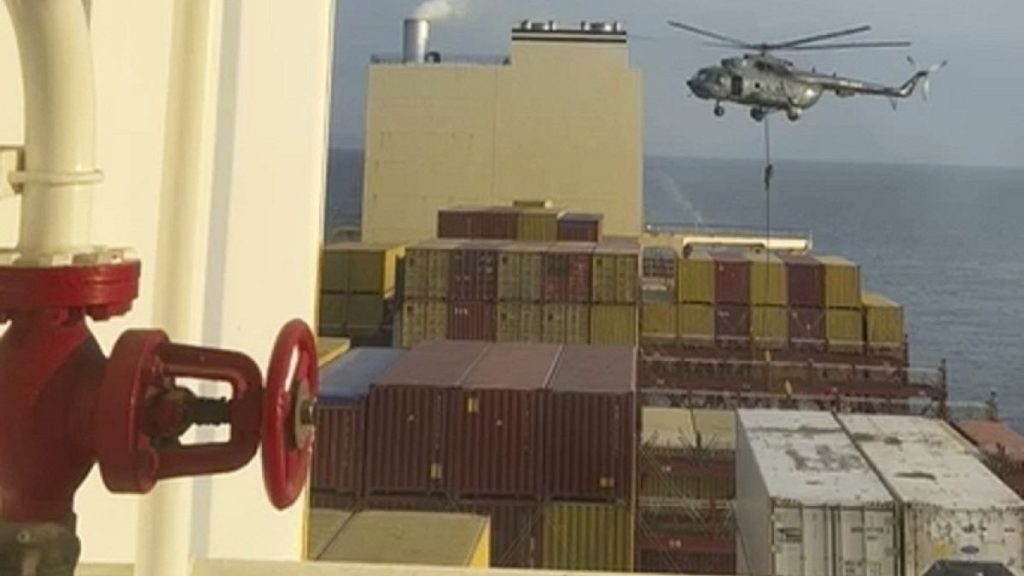The world’s shipping industry is seeking military protection for vessels in the Middle East following the seizure of a container ship by Iran. Commercial traffic between Asia and Europe has been redirected around Africa due to the seizure of the MSC Aries, prompting global shipping companies to demand increased military protection. The escalating conflict in the region has put seafarers at risk and impacted European trade flows, leading industry groups to urge the United Nations to intervene. The EU has deployed a naval force to the region to address the escalating tensions and safeguard key shipping routes.
Recent Israeli military strikes in Iran have further heightened tensions in the region, sparking concerns about the potential impact on global oil supply as the Strait of Hormuz could become a choke point for oil shipments. The strait is a crucial gateway for about a fifth of the world’s oil supply, raising fears of supply disruptions if the situation escalates further. The United Kingdom Maritime Trade Operations has warned vessels in the Arabian Gulf and western Indian Ocean of potential sightings of unmanned aircraft, although there is no imminent threat to commercial maritime vessels. The UKMTO has urged captains to report any suspicious activity to ensure the safety of vessels in the area.
Despite the impact of recent developments on the shipping industry, some cargo shippers have already diverted trade routes away from the Red Sea and the Suez Canal, minimizing the effects of the conflict in the region. Maersk, one of the world’s largest container shipping firms, rerouted vessels around the Cape of Good Hope following an attack on one of its ships by Houthi forces. The longer journey has increased shipping costs, but the impact on trade has not been significant for customers due to the minimal impact of transport costs on products being shipped. The redirection of trade flow has allowed for continued shipments to Europe with only minor disruptions in the shipping process.
The seizure of the Portuguese-flagged container ship by Iranian forces has raised concerns within the shipping industry about the safety of vessels and crews operating in the Middle East. The European Community Shipowners’ Association has expressed worries about the increased attacks on shipping in the region and the potential impact on European trade flows. The industry groups are calling on the United Nations to provide additional military protection for vessels operating in the area to ensure the safety and security of seafarers and to maintain key shipping routes. Diplomatic efforts are being encouraged to de-escalate the crisis in the region and prevent further disruptions to global trade.
The intensifying conflict in the Middle East has led to increased shipping costs and fears that the region’s strategic waterways could be targeted, thereby disrupting global trade routes. The deployment of the EU’s naval force to the region and the coordination of diplomatic efforts are crucial in addressing the escalating tensions and safeguarding key shipping routes. The shipping industry is working to navigate through the challenges posed by the conflict, with some companies re-routing vessels to avoid potential risks. Despite the challenges faced by the industry, efforts are being made to ensure the continued flow of trade and the safety of vessels and crew operating in the region.


